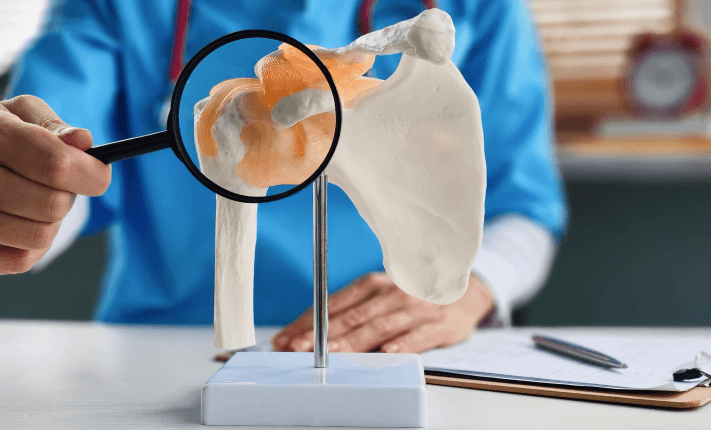What is Shoulder Arthritis?
Shoulder arthritis is a condition characterized by the degeneration of cartilage in the shoulder joint, leading to pain, stiffness, and reduced mobility. The shoulder consists of two joints: the glenohumeral joint (where the upper arm bone meets the shoulder blade) and the acromioclavicular joint (where the collarbone meets the shoulder blade). Arthritis can affect either joint, though the glenohumeral joint is most commonly involved in osteoarthritis. As the cartilage wears away, bones rub against each other, causing pain and inflammation.












